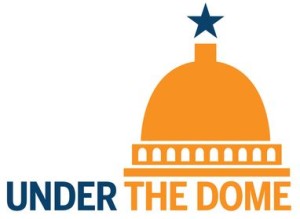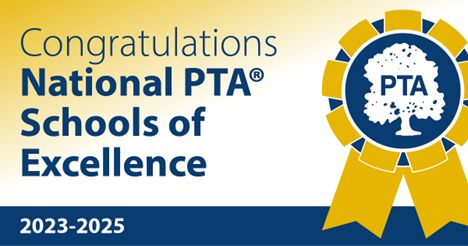Be sure to come out to the annual LISD Council of PTAs Candidate Forum! This is a great chance to meet and get to know the candidates running for the LISD Board of Trustees.
The Board of Trustees consists of seven members elected to serve for overlapping terms of three years each. Elections are conducted in May in accordance with the Texas Secretary of State Uniform Election Calendar. While candidates run for specific places, they do not represent specific geographical areas; rather, each represents Lewisville ISD at large.
In May of 2017, Places 6 and 7 will be on the ballot.
Place 6
- Peter Rabner
- Jon Hanna
- Kristi Hassett (current Place 6 trustee)
- Eric Parker
Place 7
- Sandra Weinstein
- Shari A. Chambers
- Colleen Shaw
- Tracy Scott Miller (current Place 7 trustee)
April 20th @ 6:30-8pm
Bolin Center
1565 W Main St.
Lewisville, TX 75067
House Votes to Approve State Budget – Votes to Keep Vouchers Out
After several hours of debate, the Texas House of Representatives approved a $106.8 billion budget at the end of last week in a vote of 129-18. Not included in the bill: vouchers. House lawmakers voted overwhelmingly Thursday afternoon to prohibit the state from funding programs that divert money from public schools and into private institutions.

To read more about the budget, check out this post by the Texas Tribune.
PTA Members Made a Difference!
Thank YOU for using your voice to back the future of Texas children and ensure public funds are used for public schools, not vouchers!
Contact your state senator and urge him/her to oppose vouchers, including education savings account programs and tax credit scholarship programs being heard on the Senate floor this week.
Texas PTA has a campaign set up so you can quickly and easily contact officials today!
[wc_button type=”primary” url=”https://t.e2ma.net/click/uhint/66tqjf/mj60yd” target=”_blank” position=”float”]Learn & Act to Oppose SB3[/wc_button]
Complete the survey concerning school accountability by midnight tonight (23-JAN-17).
As a reminder, the 84th Legislature passed HB 2804, changing the school accountability system so every campus and district receives one of five ratings from A – F. The law requires schools and districts to be graded based on five different areas of performance or “domains,” and those five grades must be combined into a single overall rating.
The following are A – F domains:
I: Student Achievement
II: Student Progress
III: Closing the Gaps
IV: Postsecondary Readiness
V: Community and Student Engagement
For more information on A – F or HB 2804, go to
http://tea.texas.gov/A-F/ or http://tea.texas.gov/2804implementation.aspx
LISD Council of PTAs 2017 overview of the Texas 85th Legislature.
[wc_button type=”primary” url=”https://marcusptsa.org/wp-content/uploads/2017/01/TX-85th-Legislature.pdf” target=”_blank” position=”float”]Download[/wc_button]Priorities: 85th Texas Legislative Session
- Public School Funding – Pursue an adequate and equitable solution for school funding while maintaining accountability and responsibility for educating the whole child. In addition, Texas PTA advocates for funding for enrollment growth.
- Powdered Alcohol – Pursue banning the sale to minors of powdered alcohol, or Palcohol, a powder that can be mixed with liquids — similar to the way Kool-Aid is mixed with water — to create an alcoholic beverage that can have alcohol levels equivalent to a shot of vodka.
- Bullying/Cyberbullying – Strengthen the cyberbullying law to protect students from online, often anonymous, bullying by clarifying the role of school districts in addressing this behavior, and removing barriers to law enforcement’s ability to deal with offenders.
- Funding for Quality Pre-K Grant Program
- Funding for Full Day Pre-K for at-risk students
- State of Texas Assessment of Academic Readiness (STAAR) – Advocate for reduced emphasis on state-mandated testing, focusing on grades 3-8, and monitor changes to STAAR for high school students, and limits on benchmark testing for all tested grades.
- State Accountability System – Pursue a new accountability system that is valid, reliable and balanced, focuses less on state assessment, and recognizes other attributes of a strong school program, including arts instruction and physical activity.
- Age of Adult Criminal Responsibility – Raise the age for mandatory prosecution as an adult from 17 to 18, allowing non-violent offenders who are 17 years of age to be charged as a minor.
- Districts of Innovation – Oppose efforts to take away latitude of Districts of Innovation to set their own school calendar.
- Vouchers – Oppose vouchers, including Education Account Savings Programs that allow parents to apply for an education savings account. A portion of the funds the state expends for that student’s public school education is deposited into the account. The remained of the funds are kept by the public school the student previously attended. Money in the education savings account may be used to fund private school tuition, tuition at eligible institutions, distance education, curriculum.
- State Board of Education – Actively weigh in on legislation impacting SBOE and monitor activity of SBOE in its quarterly meetings.
The Texas State Board of Education (SBOE) is seeking input from the public on the STAAR Assessment Program and the state’s accountability program with the goal of gathering suggestions for future program development.
The survey is open through June 30.
History
From October 2015 to March 2016, SBOE members held several Community Conversations around the state. The issues raised during the community meetings are addressed in the survey.
“Our constituents often talk to board members about testing and school ratings issues,” said Donna Bahorich, chair of the SBOE. “I felt it was also important for board members to have in-depth discussions to learn what educators, parents, business people and others want from these two high profile programs. I believe our findings will be useful in shaping the next generation systems.”
Information gathered from the survey and Community Conversations will be compiled into a report and presented to the SBOE during its July 19-22 meeting. Once adopted, the report will be provided to legislative leaders and the Texas Commission on Next Generation Assessments and Accountability.
The 15-member commission, created by the Texas Legislature, is to make recommendations for statutory changes to the state’s assessment and accountability systems. The commission report is to be submitted to the governor and legislature by Sept.1.
Read comments from the Community Conversations, you can check them out here.
Texas Commission on Next Generation Assessments and Accountability.
TEXAS PTA’S STATEMENT ON PUBLIC SCHOOL FINANCE RULING
 “We concur with Justice Willett and Justice Guzman that there is much work to be done,” stated Lisa Holbrook, President of Texas PTA. “In the words of Justice Guzman, ‘While the constitution requires the system be merely good enough, that does not mean that our system is good, or that it will continue to be enough.’ We must continue to improve our system of education. We cannot do less,” she added.
“We concur with Justice Willett and Justice Guzman that there is much work to be done,” stated Lisa Holbrook, President of Texas PTA. “In the words of Justice Guzman, ‘While the constitution requires the system be merely good enough, that does not mean that our system is good, or that it will continue to be enough.’ We must continue to improve our system of education. We cannot do less,” she added.
Last week, the Texas Supreme Court issued its ruling on the constitutionality of Texas’ system of funding public schools, determining that while, “undeniably imperfect, with immense room for improvement,” it is constitutional.
While the ruling means that the Texas Legislature will have no mandate to make any changes to the state’s funding system, it is clear from Justice Willett’s opinion that, “Texas’ 5 million students deserve transformational, top-to-bottom reforms that amount to more than a Band-Aid on top of Band-Aid,” and from Justice Guzman’s concurring opinion that, “There is much work to be done to improve our public school system, particularly for the population that represents the majority of the student base — economically disadvantaged students,” that the Texas Supreme Court in no way endorsed our current system as the best it can be.
“Texas PTA vows to continue to work with legislators and other advocates to create a system that is fair and that gives all students the education they deserve. We must come together — parents, school leaders, policy-makers — to craft a solution that affords every student the opportunity to achieve his/her dreams through education,” stated Holbrook. “We must not take this ruling as permission to ignore the problems we know exist in our public school system.”




